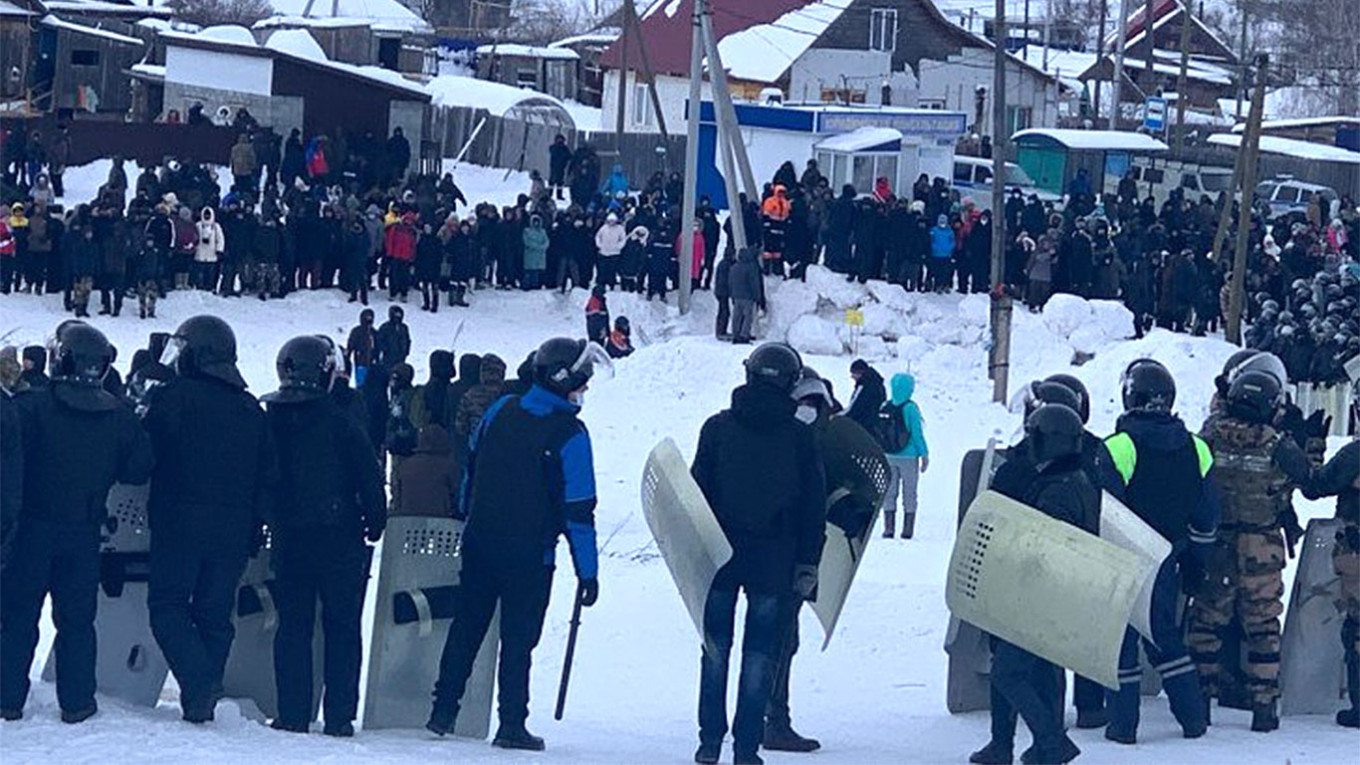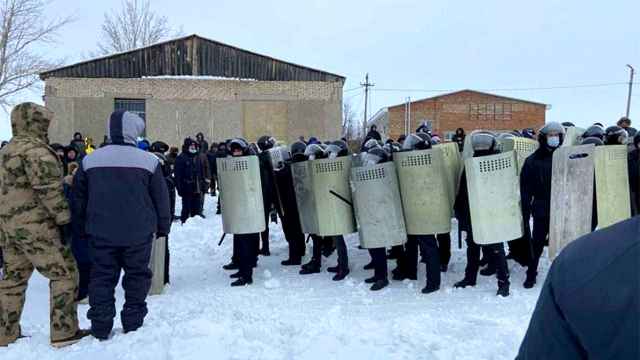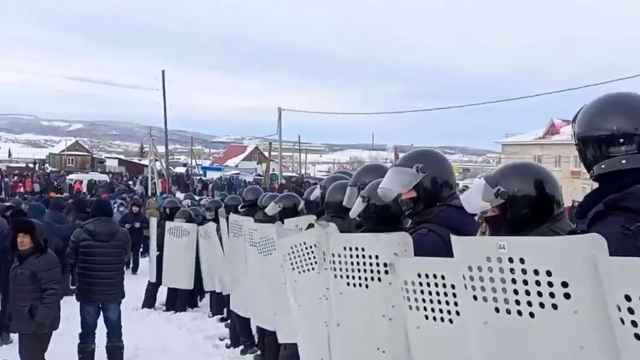A Russian court on Thursday sentenced a man to five years in prison over rare opposition protests in the Urals republic of Bashkortostan.
A court in the city of Orsk said in a statement that a 50-year-old man had been found guilty of "participating in mass unrest" and "violence against law enforcement officers" in the central republic.
The defendant pleaded guilty, the court said, without giving his name.
RusNews website named him as Ilchat Ulyubayev, saying prosecutors had requested a 10-year jail term.
According to the court, the defendant took part in winter protests in front of a court in the small town of Baymak over the jailing of a prominent local opposition activist, Fail Alsynov.
Thousands gathered at the protests in January, shaking regional authorities because they erupted just a few weeks before presidential elections that re-elected Vladimir Putin.
Such protests have become exceedingly rare in Russia, where there has been a harsh crackdown on any displays of dissent since the launch of the Ukraine offensive in 2022.
Bashkortostan has a population largely made up of Bashkirs and Tatar, two Turkic Muslim ethnic groups.
Numerous men from the region have gone to fight in Ukraine and it has suffered among the highest numbers of fatalities, according to estimates by independent media.
Alsynov, an environmental activist who also campaigned to preserve the Bashkir language, was jailed after criticizing the Ukraine offensive.
He was convicted of "inciting hatred" in a speech against mining and jailed for four years.
According to NGOs familiar with the situation, at least 80 people have been arrested in Bashkortostan over the protests, and are facing criminal prosecution and potentially severe penalties.
Two protesters are believed to have died under detention in unclear circumstances and another detainee suffered a broken vertebra, relatives told local media.
A Message from The Moscow Times:
Dear readers,
We are facing unprecedented challenges. Russia's Prosecutor General's Office has designated The Moscow Times as an "undesirable" organization, criminalizing our work and putting our staff at risk of prosecution. This follows our earlier unjust labeling as a "foreign agent."
These actions are direct attempts to silence independent journalism in Russia. The authorities claim our work "discredits the decisions of the Russian leadership." We see things differently: we strive to provide accurate, unbiased reporting on Russia.
We, the journalists of The Moscow Times, refuse to be silenced. But to continue our work, we need your help.
Your support, no matter how small, makes a world of difference. If you can, please support us monthly starting from just $2. It's quick to set up, and every contribution makes a significant impact.
By supporting The Moscow Times, you're defending open, independent journalism in the face of repression. Thank you for standing with us.
Remind me later.






